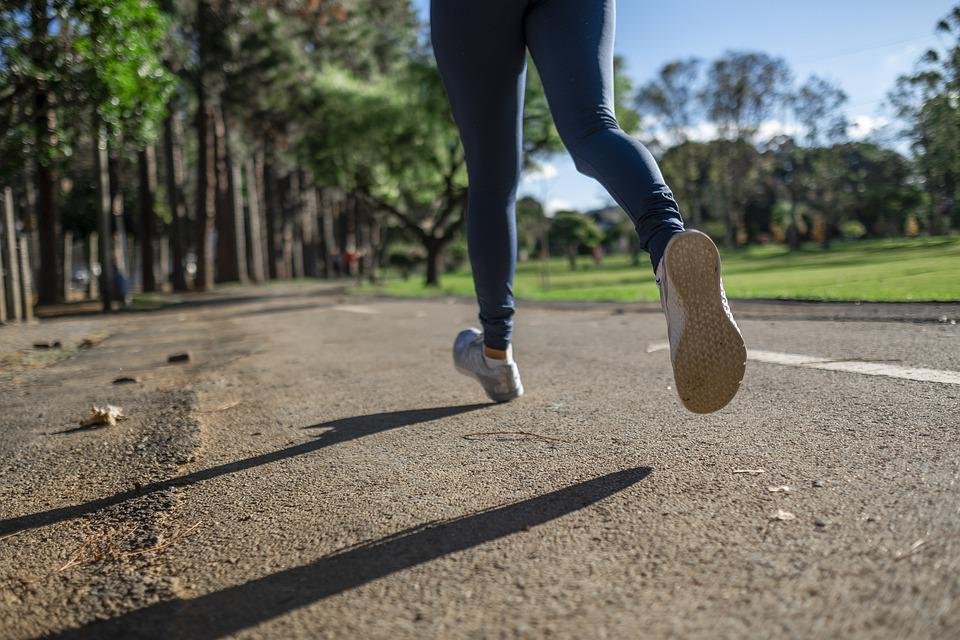Some materials can be used to increase and improve performance, but not all are necessary and some can be dangerous. Here is a short list of what works and where to go.
Some exercises can improve performance and speed recovery, but not everything works.
Stokes
If you want to get the most out of every agent and gym workout, you might want to consider taking a supplement. According to a Portuguese study published in the Journal of the International Society of Sports Nutrition in February 2020, about 44% of 459 gymnasts surveyed reported consuming nutritional supplements. Most of the participants are young professionals.
Add-ons are becoming more common. This study lists protein powders, toys, creatine and more.
Dr. Nicole Avena, a neuroscientist at Mount Sinai School of Medicine in New York, says certain exercises can help people with specific goals, such as running a marathon or gaining muscle, or people with arthritis. Meet the medical psychology professors at City and Princeton University in New Jersey. According to the National Institutes of Health’s Office of Dietary Supplements (ODS), supplements are designed to improve performance, reduce the risk of injury, and promote recovery.
Some drugs can deliver on this promise, but it’s important to remember the words in the name. Their purpose is to supplement, not replace, a balanced diet.
“They’re not meant to change anything,” says Albert Matheny, RD, CSCS, founder of SoHo Strength Lab in New York City. “The goal is to get what you need to be healthy through healthy eating, but supplements are a great way to combat malnutrition.” Junior doctors can help diagnose malnutrition, according to Rush University Medical Center. “If you have to choose between a good fish or a protein shake, I’d say eat a good fish,” Matheny said. “Because you’re getting other nutrients [besides protein].”
If you decide to continue, says Dr. Avena, you should choose it carefully.
Avena suggests you look for reputable products that have been on the market for years and make sure they’ve been third-party tested. If found, you can easily see the third mark on the bottle. Look for the United States Pharmacopoeia (USP) or NSF International logo. Johns Hopkins Chemistry Council. And be sure to check with your doctor before taking any other medications. They can interact with other medications, cause side effects when taken before surgery, and can be dangerous if you have pre-existing medical conditions, according to the National Institutes of Health.
It is also a good idea to contact companies you have doubts about with business questions.
7 of the most popular work accessories and what you need to know about them
1.Creatine
You may have heard about the function of creatine. According to HC, creatine is one of our top supplements recommended by sports scientists. According to the Mayo Clinic, creatine is present in the body and brain. It helps generate energy for high-intensity workloads such as sprinting and heavy lifting.
Advice from researchers and experts. A small study published in Foods in June 2020 found that young people who participated in physical activity were supplemented with creatine during the study. Weeks of strength training saw increases in leg press, chest press and total body strength compared to the sample group.
Another study published in Nutrient in November 2018 found that creatine supplementation increased muscle tone after four weeks of training. Most bodybuilders tolerate creatine well. “We’re safe with creatine.” Said Dr. Spillane that it is one of the best football grounds. “It’s something we’ve always given everyone.
Although research on the effectiveness of creatine is lacking, Spillane’s experience shows that about 70% of people respond to supplements.
According to Mount Sinai, check with your doctor before taking creatine or your nonsteroidal anti-inflammatory drugs (NSAIDs), caffeine, diuretics, Tagamet, drugs that affect the kidneys, or probenecid (to treat gout). Although generally safe to consume, it can cause side effects including weight gain, muscle tension and spasms, heartburn, high blood pressure, decreased liver and kidney function.
2. Leucine
The University of Rochester Medical Center states that leucine is one of the three essential amino acids (BCAAs) and is used to burn muscle mass during exercise. Leucine’s role is to repair and build muscle, even in older people who may need muscle repair, and that’s one of the most important sports benefits recommended by experts, Spillane said.
Gymnasts and athletes who need to build power often use this enhancement. “Leucine opens up unique muscle pathways that are important for growth and repair,” says Spillane.
This means you there is no need to take this supplement because you can get leucine from your diet. It is found in meat, fish, poultry, eggs and milk. Previous research and clinical studies have shown that BCAAs like leucine can help improve muscle tone and reduce body fat. A small study found that in 36 men and women ages 65 to 75, participants who took leucine twice a day improved muscle tone and function. However, taking too much of the drug can lead to hypoglycemia or a condition called pellagra, says the University of Rochester Medical Center. Previous studies have shown that the safe daily limit is about 0.53 grams per kilogram of body weight. Also, do not eat if you are pregnant, breastfeeding or have urinary incontinence.
3. Protein
Protein offers many nutritional benefits and, through exercise, is beneficial for improving muscle tone, recovery and appetite control, according to Harvard Health. Most Americans get enough protein from their diet, but more active athletes want to increase their protein intake to build muscle. This is why some athletes take supplements high in protein (such as soy or wheat protein) or animal protein (such as whey), which are usually provided in the form of flour. In powder form, this supplement can easily be added to workout smoothies.
Scientists and experts say the ODS states that athletes need 0.5 to 0.9 grams of protein per kilogram of body weight per day. The cost of intensive training is increasing. A high protein intake is good from a safety point of view (there is no danger of overeating in healthy people). However, according to the ODS, there is no greater benefit than is recommended. The authors of a review published in Current Food Information in May 2018 agree that protein can be obtained from real food at any time and that the drug should only be used if you cannot consume enough of it.
CSCS, RD, Marie Spano, co-author of Nutrition for Sports, Exercise, and Health, agrees. “If you’re getting enough protein from food, you don’t need [more],” he says.
4. Beta-Hydroxyl Beta-Methyl butyrate (HMB)
HMB is formed when the body breaks down leucine. Memorial Sloan Kettering Cancer Center says that because HMB prevents or reverses muscle damage that can be caused by exercise, some athletes take HMB supplements to help with muscle strength and endurance.
A study published in the Journal of Human Kinetics in 2019 found that HMB can reduce muscle soreness after exercise and improve muscle tone during exercise.
This can especially help with injury recovery, Spano said. “Let’s say a 70-year-old man is in the hospital with a broken hip,” Spano said. But for the average young person who is in the gym and working out, HMB is unnecessary. “
Memorial Sloan Kettering Cancer Center says more research is needed to support its benefits for athletes.
5. Coffee
Yes, one cup of coffee a day will do more than wake you up in the morning. It also improves athleticism. This is a very popular game. A survey published in Frontiers in Sports and Recreation in December 2020 found that 3 out of 4 athletes (i.e. track and field, track and field, tennis and tennis players) drink caffeine before or during the sports season.



